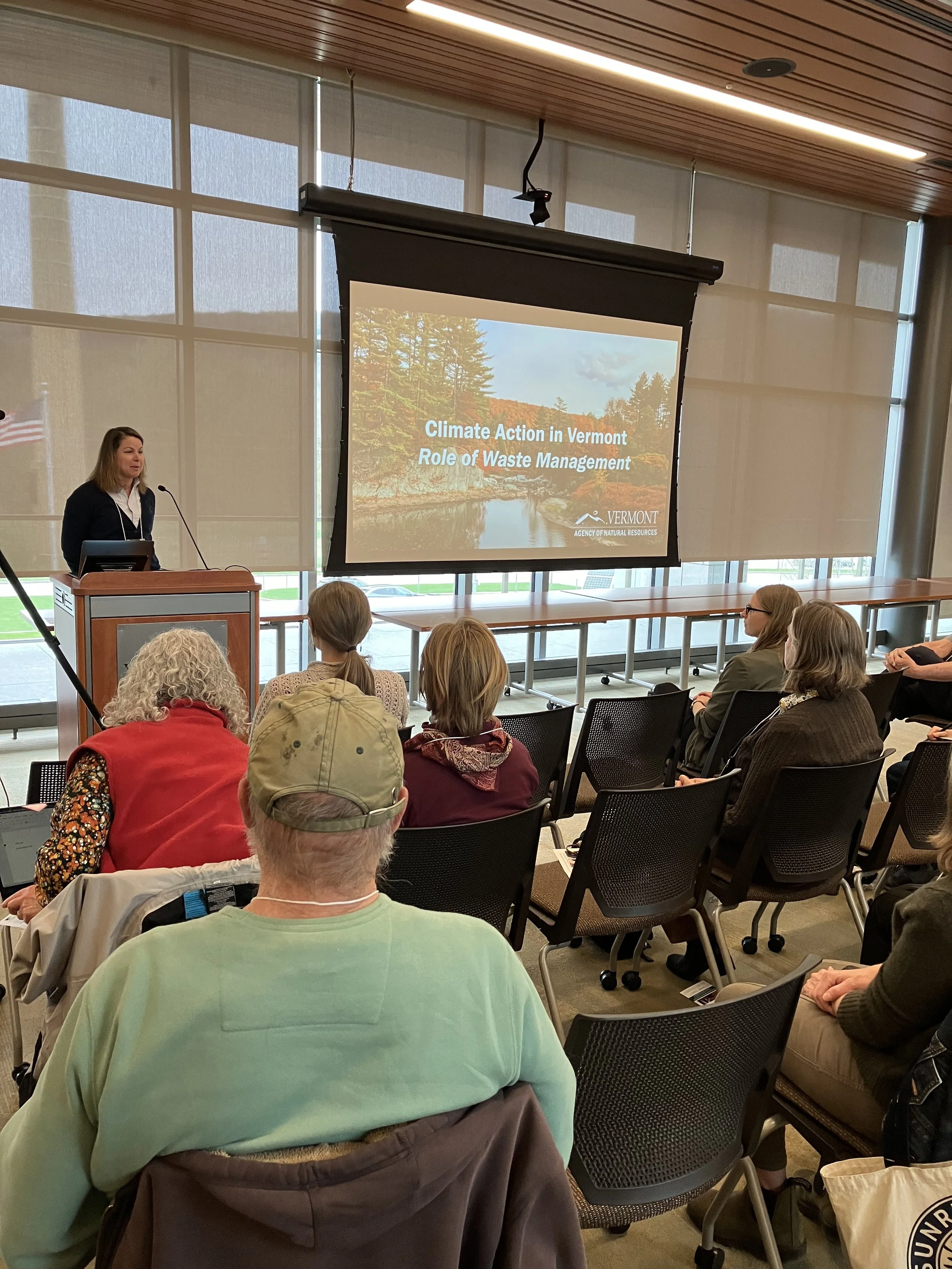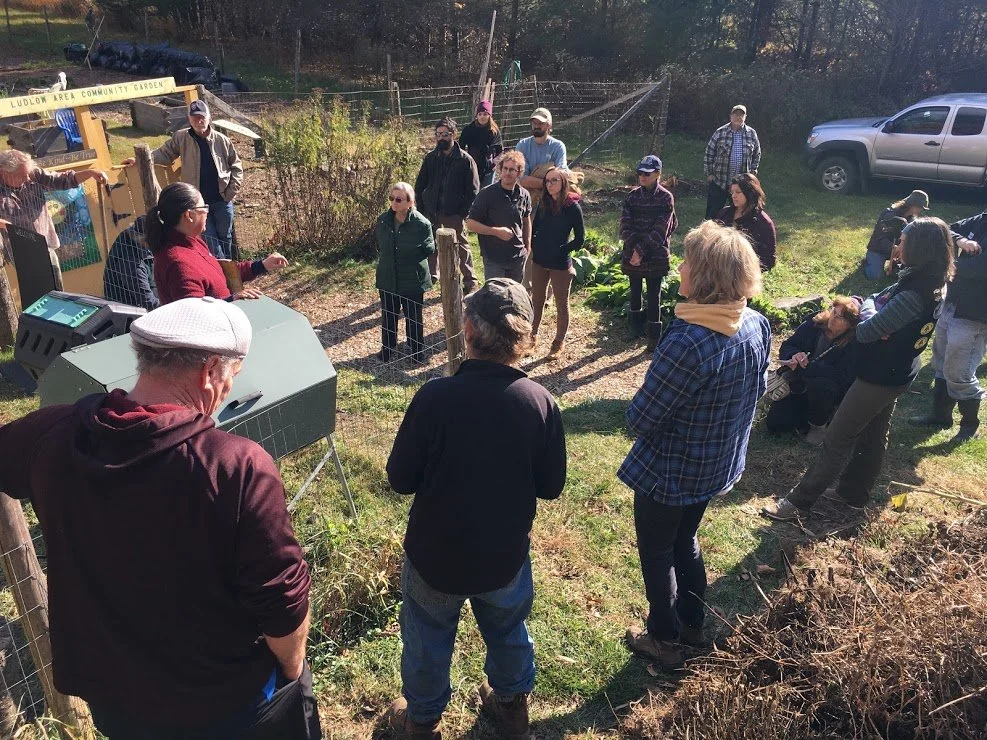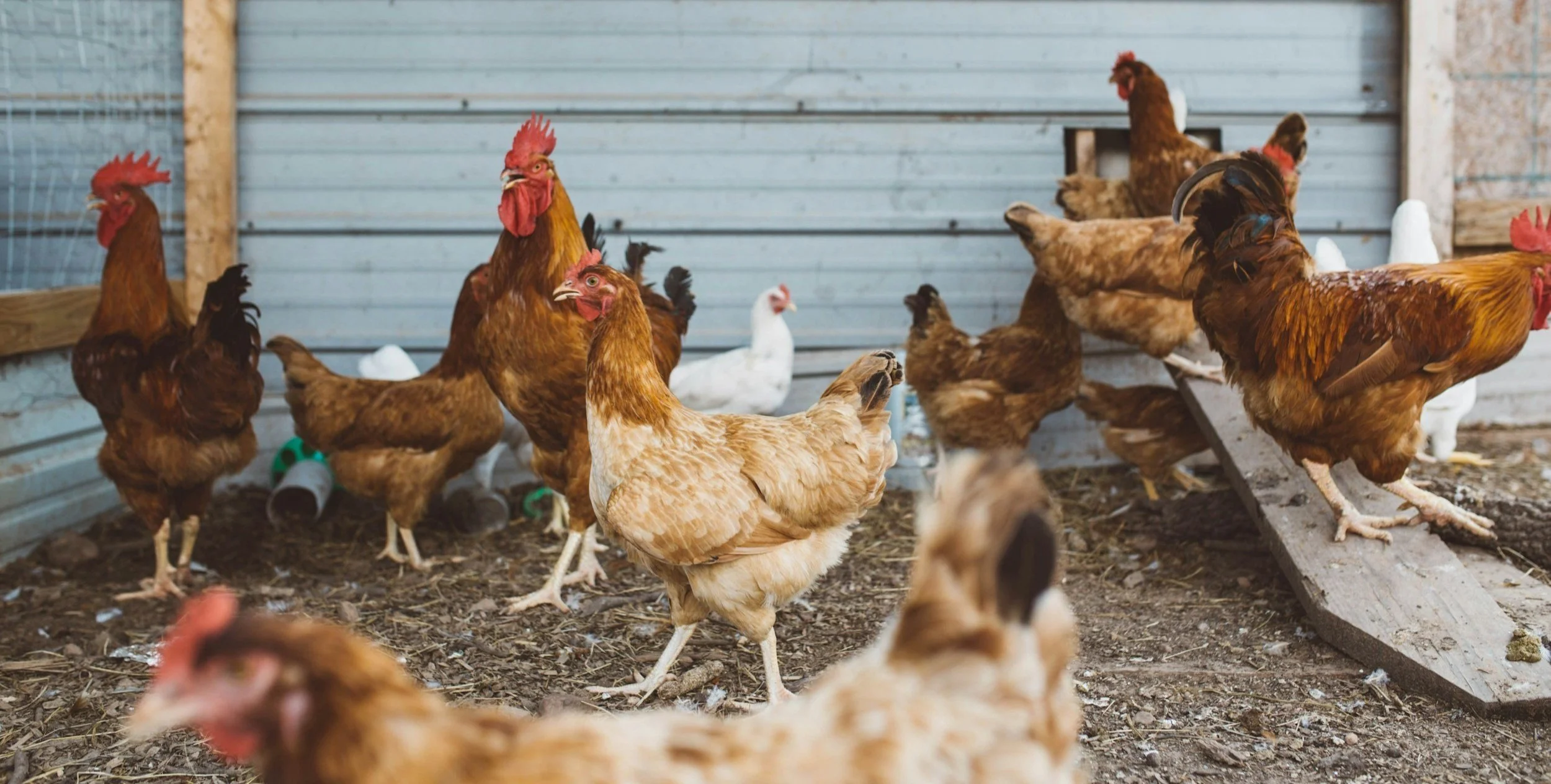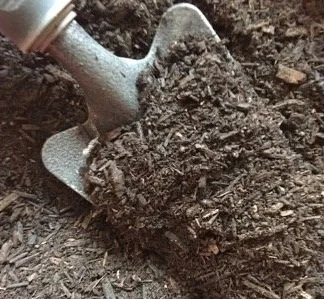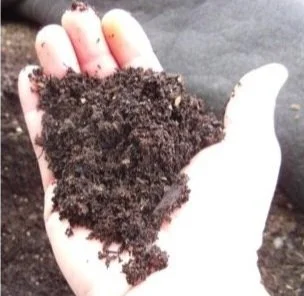
Composting Association of Vermont
growing resilient communities with compost
Our purpose is to facilitate the responsible production and use of compost in Vermont.
Our mission is to champion quality compost for healthier soil, cleaner water, and stronger communities.
Through education, policy, and partnerships, we turn waste into resources, boost plant vitality, and build environmental resilience.
-
Vermont Organics Recycling Summit (VORS)
Food Cycle Community of Practice
Community-oriented composting
Coalitions & partnerships
-
On-farm composting
Soil Builders - Education in Action
On-going initiatives
Vermont Organics Recycling Summit
CAV hosts the annual Vermont Organics Recycling Summit (VORS), in partnership with the VT Agency of Natural Resources.
The summit gathers leaders and learners from across the state and region to discuss creative ways to keep organics out of the trash and to transform them into valuable products.
Farm to Plate Food Cycle Community of Practice
The vision of the Food Cycle Community of Practice is to divert food and organic materials that would otherwise be wasted and convert them into a valuable resource to support our local food system. The Community of Practice promotes and supports source reduction, food rescue, composting, animal feed utilization and energy production. Diverting quality food and other organic materials from the landfill will help increase food security, create jobs, reduce fossil fuel dependence, reduce greenhouse gases, protect waterways and soil, sustain local food systems, and build stronger communities.
Community Composting
Community composting turns local food scraps into valuable resources. Decentralized and distributed by design, these efforts appear in neighborhoods, schools, public spaces, farms, and beyond. CAV supports composting at all scales through training, resources, and partnerships, helping to keep organics out of the landfill while building healthy soil, strong networks, and resilient communities.
Coalitions and Partnerships
CAV actively collaborates with a diverse network of coalitions, organizations, and agencies to advance sustainable composting practices and strengthen Vermont’s food system.
Grant-funded initiatives
Community-oriented on-farm composting
This project empowers farms and communities with cost-effective solutions to divert food and organic waste to composting, enhance manure management, and promote sustainable practices.
Key benefits include waste reduction, healthier soils through compost use, reduced fertilizer reliance, and potential improvements in food security.
By leveraging compost for agricultural practices, erosion control, and water pollution mitigation, the initiative fosters broad engagement in environmental stewardship. Raising awareness about resource management in rural areas, supports creative food recovery efforts, and boosts farm resilience by diversifying income streams.
Soil Builders Program - Education in Action
Concerns over high phosphorus levels in the Lake Champlain Basin have led to uncertainty about the appropriate use of compost. Many lack clear information on its specific benefits and how to adapt farming, site engineering, and landscaping practices to maximize its advantages.
This project aims to bridge that knowledge gap by enhancing eco-literacy among decision-makers, professionals, and advocates. It highlights the connections between compost, soil health, nutrient management, water quality, and climate resilience.
Through hands-on workshops, demonstrations of best practices, and interactive signage that encourages public engagement, the project creates opportunities to refine current practices and make compost-based solutions more accessible and practical.
On-going Initiatives
-
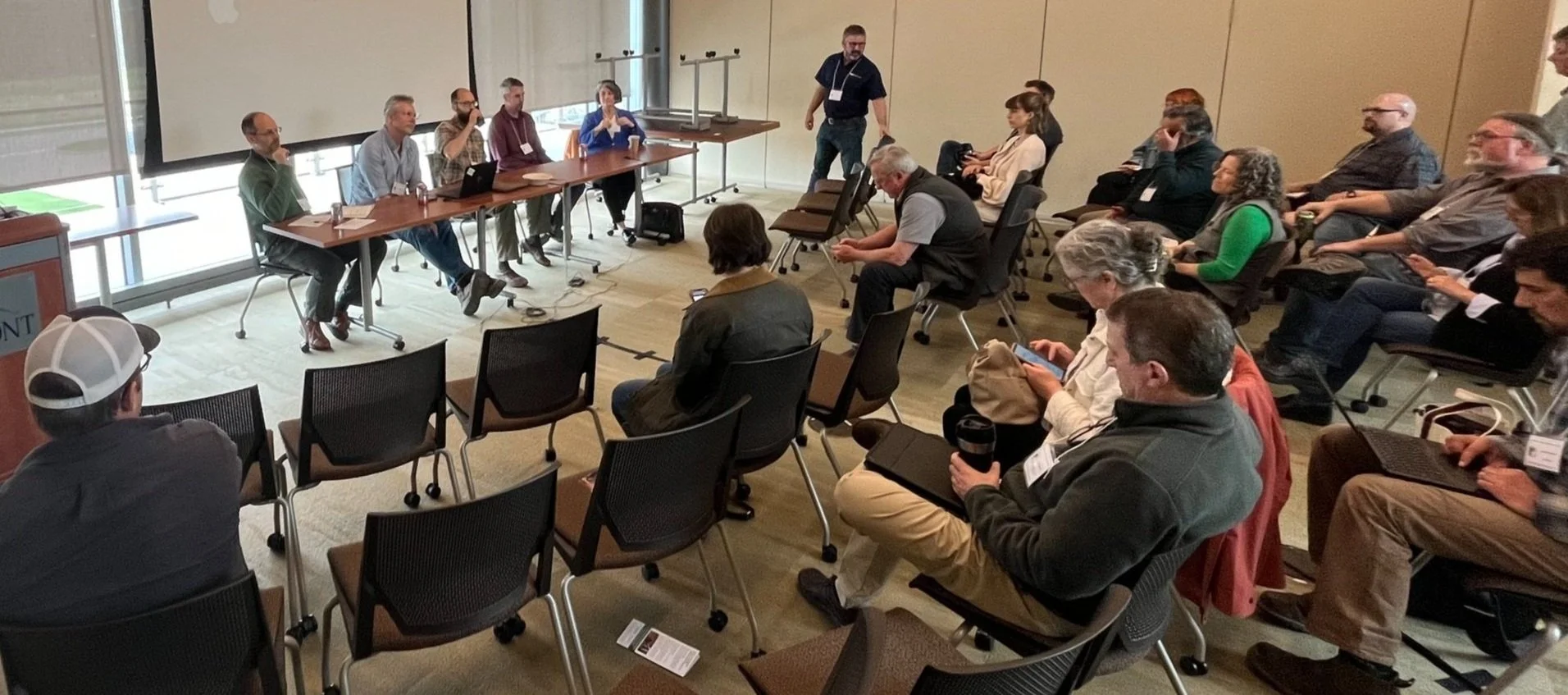
Vermont Organics Recycling Summit
CAV hosts the annual Vermont Organics Recycling Summit (VORS) in partnership with the Vermont Agency of Natural Resources. This statewide gathering brings together leaders, innovators, and community members to explore solutions for keeping organics out of the trash and turning them into valuable resources.
-

Food Cycle Community of Practice
The Food Cycle CoP brings together partners working to keep food and organic materials out of landfills and put them to good use—through source reduction, food rescue, composting, animal feed, and energy production. Together, we’re building a stronger food system, supporting communities, and protecting the environment.
-
Community Composting
Community composting turns local food scraps into valuable resources. Decentralized and distributed by design, these efforts appear in neighborhoods, schools, public spaces, farms, and beyond. CAV supports composting at all scales through training, resources, and partnerships, helping to keep organics out of the landfill while building healthy soil, strong networks, and resilient communities.
-

Coalitions & Networks
CAV actively collaborates with a diverse network of coalitions, organizations, and agencies to advance sustainable composting practices and strengthen Vermont’s food system.
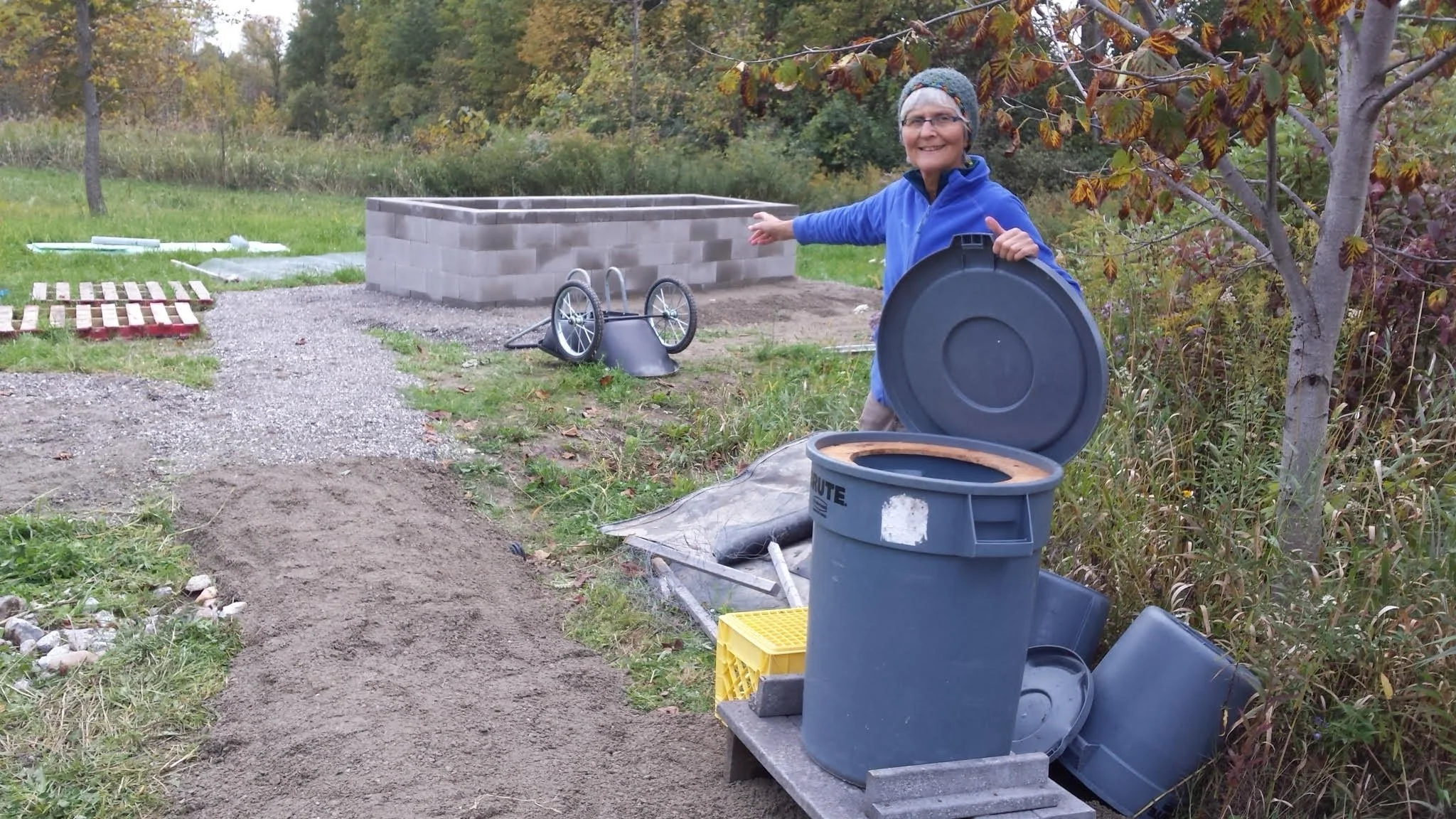
Grant-funded Initiatives
-
Community-oriented on-farm composting
This project empowers farms and communities with cost-effective solutions to divert food and organic waste to composting, improve manure management, and promote sustainable practices. Key benefits include waste reduction, healthier soils through compost use, reduced reliance on fertilizers, and potential improvements in food security. By leveraging compost for agricultural practices, erosion control, and water pollution mitigation, the initiative fosters broad engagement in environmental stewardship. It also raises awareness about resource management in rural areas, supports innovative food recovery efforts, and boosts farm resilience by diversifying income streams.

-
Soil Builders - Education in Action
Concerns about high phosphorus levels in the Lake Champlain Basin have raised questions about the proper use of compost. Many individuals lack clear information on its specific benefits and how to adapt farming, site engineering, and landscaping practices to maximize its potential. This project seeks to address that knowledge gap by enhancing eco-literacy among decision-makers, professionals, and advocates. It explores the vital connections between compost, soil health, nutrient management, water quality, and climate resilience. Through hands-on workshops, best practice demonstrations, and interactive signage designed to engage the public, the project offers opportunities to refine current practices and make compost-based solutions more accessible and practical for all.

Community-oriented on-farm composting
This project empowers farms and communities with cost-effective solutions to divert food and organic waste to composting, improve manure management, and promote sustainable practices. Key benefits include waste reduction, healthier soils through compost use, reduced reliance on fertilizers, and potential improvements in food security. By leveraging compost for agricultural practices, erosion control, and water pollution mitigation, the initiative fosters broad engagement in environmental stewardship. It also raises awareness about resource management in rural areas, supports innovative food recovery efforts, and boosts farm resilience by diversifying income streams.
Soil Builders - Education in Action
Concerns about high phosphorus levels in the Lake Champlain Basin have raised questions about the proper use of compost. Many individuals lack clear information on its specific benefits and how to adapt farming, site engineering, and landscaping practices to maximize its potential. This project seeks to address that knowledge gap by enhancing eco-literacy among decision-makers, professionals, and advocates. It explores the vital connections between compost, soil health, nutrient management, water quality, and climate resilience. Through hands-on workshops, best practice demonstrations, and interactive signage designed to engage the public, the project offers opportunities to refine current practices and make compost-based solutions more accessible and practical for all.

“I’m really excited about joining the community-based composting project because I'm learning how to compost. I have some amount of confidence in it now, whereas before, I felt like it was sort of out of reach. I'm also really excited about involving my community, especially in an underprivileged rural population. We're able to take control of a small part of our lives.”
— Sayer Palmer, Open Woods Farm in Grafton, NH
Contact
Feel free to contact us with any questions.
Email
info@compostingvermont.org
Phone
802-373-6499




